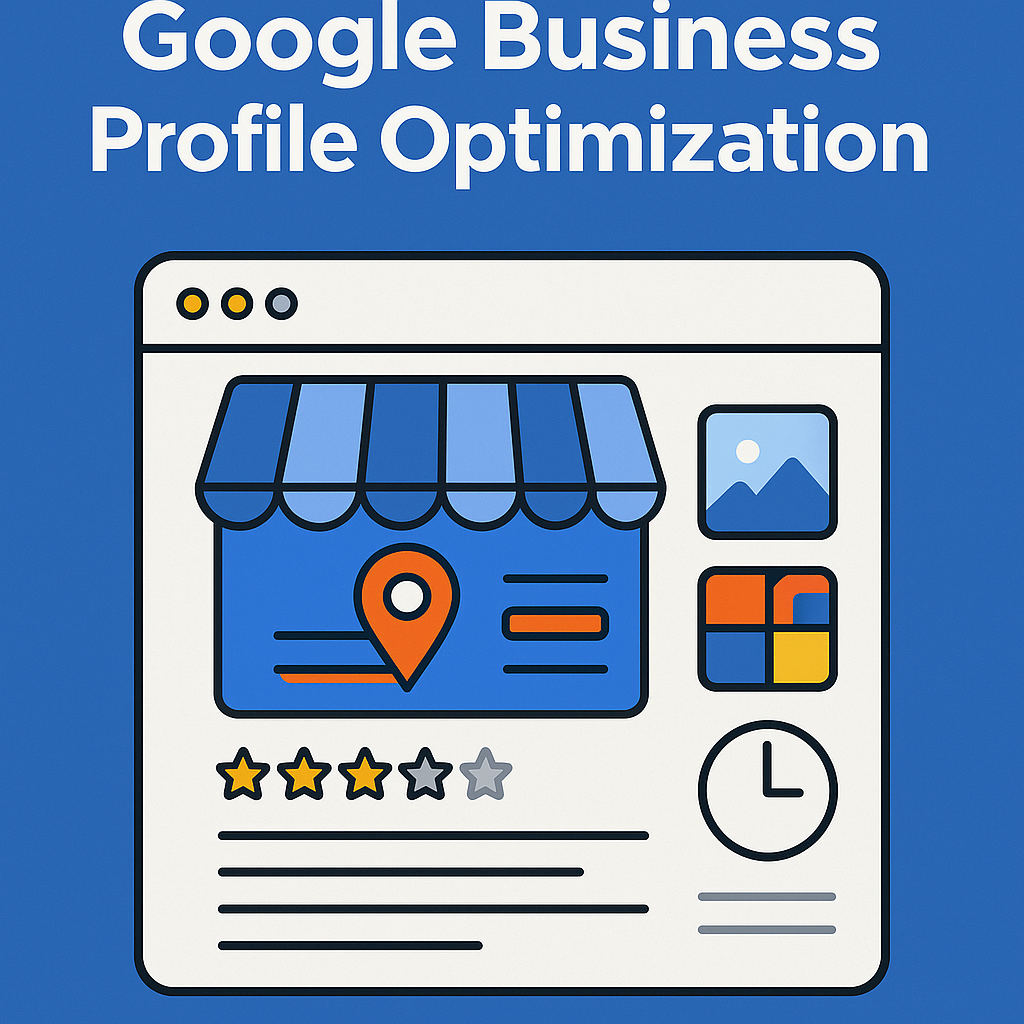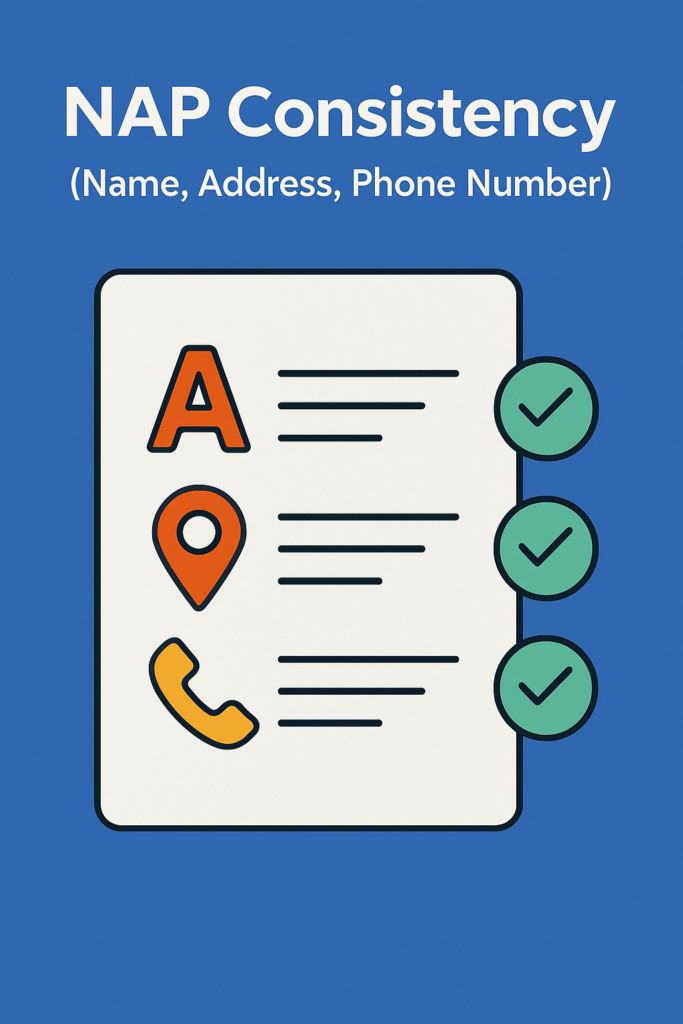
Top 10 Local SEO Ranking Factors for 2025 (And How to Optimize for Each One)
🧭 Introduction
In 2025, local SEO has never been more essential. With increasing mobile searches and hyper-localized algorithms, small and medium businesses must adapt to stay visible online. If you’re a local business owner, digital marketer, or SEO agency, understanding the top-ranking signals is key to driving in-store visits and phone calls.
In this blog, we’ll break down the top 10 local SEO ranking factors for 2025—what they mean, why they matter, and how to optimize each one for better visibility and leads.
✅ 1. Google Business Profile Optimization
Why it matters:
Google Business Profile (GBP), formerly Google My Business, remains the #1 factor in Google’s Local Pack rankings. It’s your storefront on Google.
How to optimize:
- Complete every field: business name, categories, hours, website, services, and products.
- Use relevant keywords naturally in your business description.
- Upload high-quality, recent photos showcasing your location, staff, and products.
- Regularly publish posts about offers, events, and news.
✅ 2. NAP Consistency (Name, Address, Phone Number)

Why it matters:
Google uses your business information to verify your legitimacy. If your NAP is inconsistent across platforms, it creates confusion and lowers trust.
How to optimize:
- Use the exact same formatting for your business name, address, and phone number on every listing.
- Audit your presence on sites like Yelp, Bing Places, Apple Maps, Facebook, and industry-specific directories.
- Use tools like Yext or BrightLocal to maintain consistency across the web.
📸 Visual Aid:
✅ 3. Online Reviews (Quantity + Quality + Recency)
Why it matters:
Google considers user reviews as strong trust signals. Businesses with more positive, recent reviews typically rank higher.
How to optimize:
- Ask every happy customer for a review via email or SMS.
- Respond professionally to both positive and negative reviews—this shows engagement.
- Include keywords naturally in your responses when appropriate (e.g., “Thank you for visiting our [city] location”).
💡 Pro Tip: Set up an automated system to follow up with customers after their visit.
✅ 4. Local Backlinks
Why it matters:
Links from local news sites, blogs, and community organizations help Google understand your location relevance and authority.
How to optimize:
- Get featured in local newspapers, blogs, or radio station websites.
- Partner with local charities or sponsor events.
- Join and get listed on local chamber of commerce or business association websites.
📍 Think of it like virtual word-of-mouth for your community.
✅ 5. On-Page SEO for Local Pages
Why it matters:
Your website content helps Google determine your relevance to local searchers. Without proper local signals on-page, you’ll lose visibility.
How to optimize:
- Include city or neighborhood names in title tags, headers, meta descriptions, and content.
- Use LocalBusiness Schema for structured data.
- Create individual landing pages for each location or city you serve.
🛠️ Make sure each local page has unique content—not just duplicate pages with a city name swap.
✅ 6. Mobile-Friendliness & Page Speed
Why it matters:
Over 70% of local searches happen on mobile devices. If your site is slow or broken on mobile, users will bounce—and Google will notice.
How to optimize:
- Use responsive design that adapts to all screen sizes.
- Test your speed using Google PageSpeed Insights.
- Compress images, enable caching, and minimize third-party scripts.
📸 Image Example:
✅ 7. Behavioral Signals (CTR, Dwell Time, Bounce Rate)
Why it matters:
Google tracks how users interact with your listing. If people click through and stay on your site, it signals relevance and usefulness.
How to optimize:
- Write compelling meta titles and descriptions to increase click-through rates.
- Add FAQs, local testimonials, and interactive content to keep users engaged.
- Use clear calls to action (CTAs) like “Get Directions,” “Book Now,” or “Call Today.”
💬 Add a chatbot or contact widget to make interactions frictionless.
✅ 8. Proximity to Searcher
Why it matters:
Google prioritizes businesses that are geographically closer to the searcher—especially on mobile.
How to optimize:
- Set your service area correctly in your GBP.
- Consider opening multiple verified locations if you serve several nearby cities (and are eligible).
- Use hyper-local language in content and metadata (e.g., “Serving Downtown Austin”).
📍 While you can’t control someone’s location, you can ensure your business is locally visible when they’re nearby.
✅ 9. Citations & Directory Listings
Why it matters:
Citations—mentions of your business on other sites—reinforce your legitimacy and help Google verify your information.
How to optimize:
- Submit to quality directories like Yelp, YellowPages, BBB, Foursquare, and local business hubs.
- Ensure your NAP is consistent (again).
- Use tools like Whitespark or Moz Local to manage citations at scale.
🔎 Don’t forget niche directories relevant to your industry—like Avvo for lawyers or Healthgrades for doctors.
✅ 10. Regular GBP Posts & Q&A Updates
Why it matters:
An active Google Business Profile shows Google and users that your business is alive and engaged.
How to optimize:
- Post weekly updates: seasonal offers, events, tips, or new product announcements.
- Encourage users to ask questions in the Q&A section—and answer them promptly.
- Seed helpful FAQs yourself to preempt common customer concerns.
📆 Make GBP updates part of your weekly marketing routine.
🔄 Bonus: Stay Up-to-Date with Google Algorithm Changes
Local SEO is dynamic. What worked last year may not work this year.
How to stay updated:
- Follow trusted blogs like Moz, Search Engine Land, and BrightLocal.
- Subscribe to newsletters from local SEO experts.
- Test, track, and optimize using tools like Google Search Console, Google Analytics 4, and Local Falcon.
🧠 Conclusion
Local SEO in 2025 is all about consistency, engagement, and local relevance. Here’s a quick recap:
- Optimize your Google Business Profile
- Maintain NAP consistency across the web
- Gather and respond to reviews
- Build local backlinks
- Improve on-page SEO for each local page
- Ensure your site is mobile-friendly and fast
- Improve behavioral signals with engaging content
- Leverage proximity-based visibility
- Get listed in directories and build citations
- Post regularly and manage your GBP Q&A
